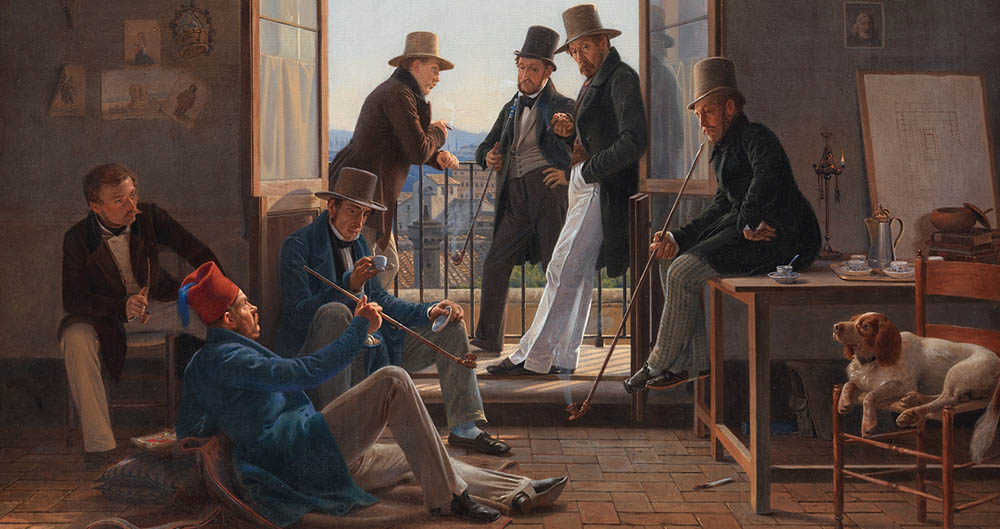The Comforts of Misanthropy
My pessimism makes me hopeful. Human beings—myself very much among them—cause me so much dismay, with their perpetual stupidity, immorality, incompetence, incivility, and philistinism, that I am inclined to judge the present shambles of our society to be rather good in the grand scheme of things.
My wife says that I have always been crotchety. In my defense, there is a lot to be crotchety about. People don’t seem to read anymore. The schools are going to pieces. People today seem to think exclusively in the slogans of shallow ideologies. They already know the answers, and when they are asked to reason, they simply reason backward from the answers they already know. They let their children read Captain Underpants.
The dominance of mass media over people’s minds has generated a culture of petty pleasures and pettier resentments. A populous inebriated on a steady drip of marketing and propaganda seems incapable of electing any official with even a modicum of competence or integrity. But I suspect this is a structural feature of our system rather than a momentary hiccup induced by the sudden consumption of novel media poisons.
Enormous sums of money are spent by municipal committees on grotesque, inhuman masses of concrete and steel because aesthetic styles founded on the desire to “fight the system” have been adopted by the bureaucracies of technocratic state institutions. The irony of this, however, is lost on the pantsuits within.
The youth these days seem to think Marvel movies are pretty good.
As a student of history, however, I have learned to be crotchety about the whole thing. Human beings—again and again—form societies of folly, vice, and plain old poor taste. Many history books and art museums are designed to show us the bright spots, the rare heroic individual who does something truly beautiful. Most people’s knowledge of the past is exclusively garnered from such sources and so they overlook the muck of the years between. Conversely, most people’s knowledge of the last few decades is gathered from the news, which operates on a business model that privileges the horrible, the fear-inducing, the mockable, or the gross. Hence, we are likely to have a lopsided view of how bad things are today.

In 400 B.C., a jury of 500 Athenian citizens condemned to death, on ridiculous charges, one of the noblest men to ever live. The Jews did much worse under Pontius Pilate. Tacitus documents the cowardice and self-serving small-mindedness of the whole senatorial class as the Caesars took more and more power. Plautus, Apuleius, Juvenile, or Catullus give us glimpses into the ordinary lives of Roman people that are at once hilarious and depressing. And lest we think this only applies to the pre-Christian state of humanity, there is a reason that we describe as “Byzantine” political systems that are vice-ridden, manipulative, and cruel or that historians call the tenth-century papacy the “pronocracy.”
In 1789, the French began a revolution both power-starved and power-mad. Resentment caused blood to flow in the streets from the severed heads of thousands. The resulting government changed hands multiple times, often putting in place one overly rationalistic and vindictive plan only to be replaced by another, often operating with no real plan at all. Napoleon was the result. In 1848, numerous revolts sprang up across Europe sweeping away in the wake of the mobs much that was beautiful. In 1917, a tiny percentage of the Russian population managed to seize, in a matter of months, the reins of power and began an insane scheme to reorganize society and human nature itself. We have yet to recover from any of these revolutions.
I find bewildering, therefore, the view put forward by many of my conservative friends (and many liberals too) that the present moment is uniquely horrible, no good, very bad, outrageous, and disgusting. I hear the word “unprecedented,” but like Inigo Montoya, I suspect that it does not mean what they think it means. As a misanthropic historian, I think human societies generally are horrible, no good, very bad, outrageous, and disgusting.
And yet—and yet!—these same societies produced Socrates, Plato, and Aristotle, St. Augustine and St. Benedict, the Pantheon and the Hagia Sophia, the paintings of Jacques-Louis David and the writings of Solzhenitsyn. On the more ordinary level, these societies were filled with people who were kind and generous, tasteful and humane, industrious, clever, and creative. People married, had children, tended their shop, and cared for their elderly parents.
Brooding in my crotchety misanthropy, I sometimes remember to look up. I see a gangly, awkward young man walking forward with his family to the communion rail. For just a moment I see his real humanity as he kneels. I see the priest place the Host on his tongue. For a moment, I know that we are redeemed.
